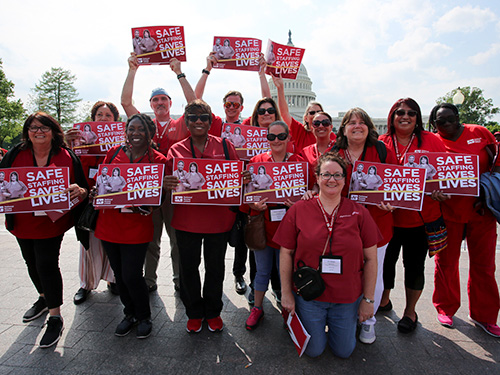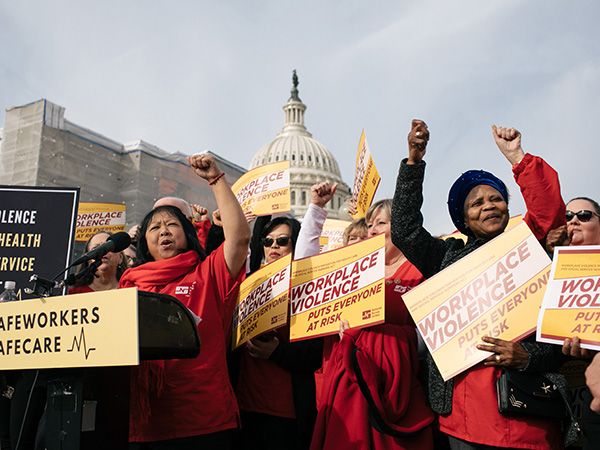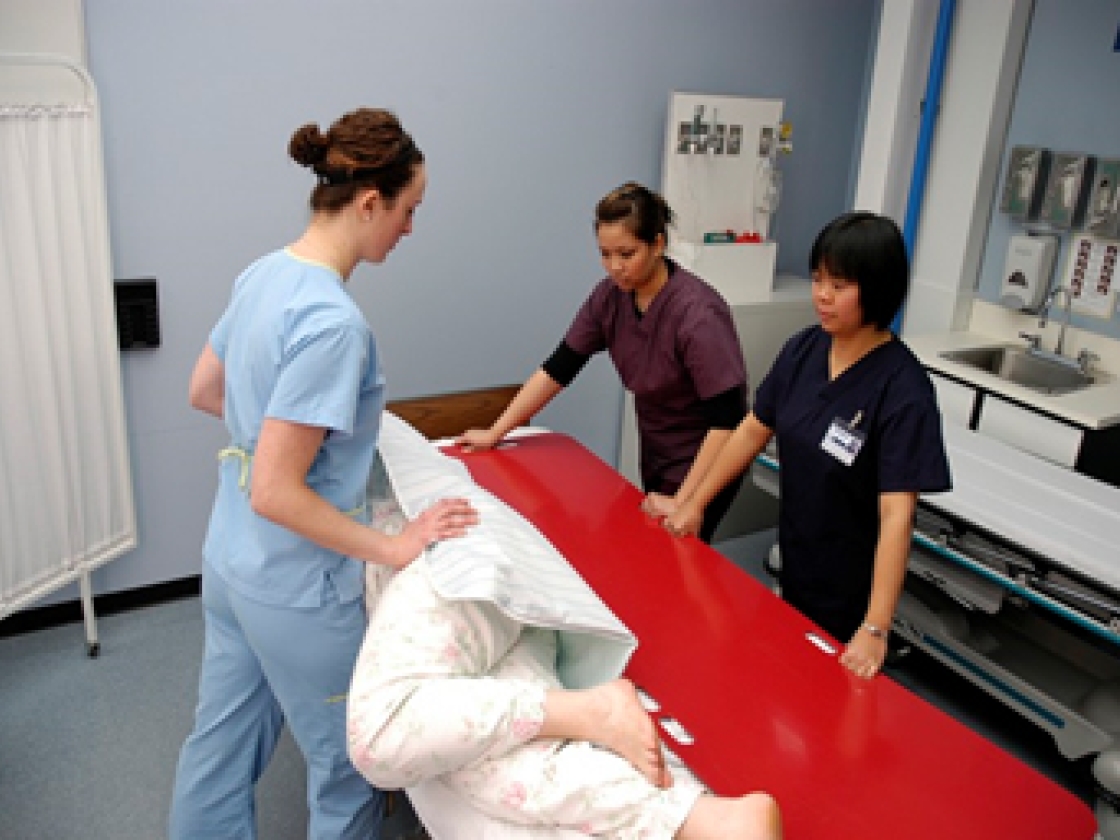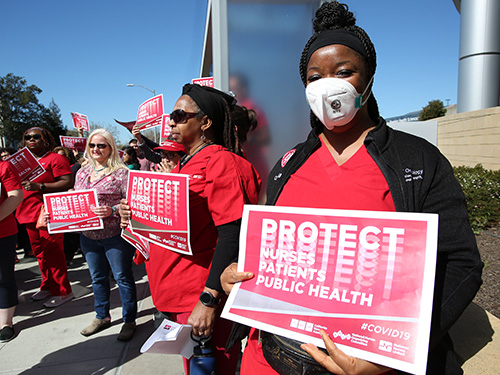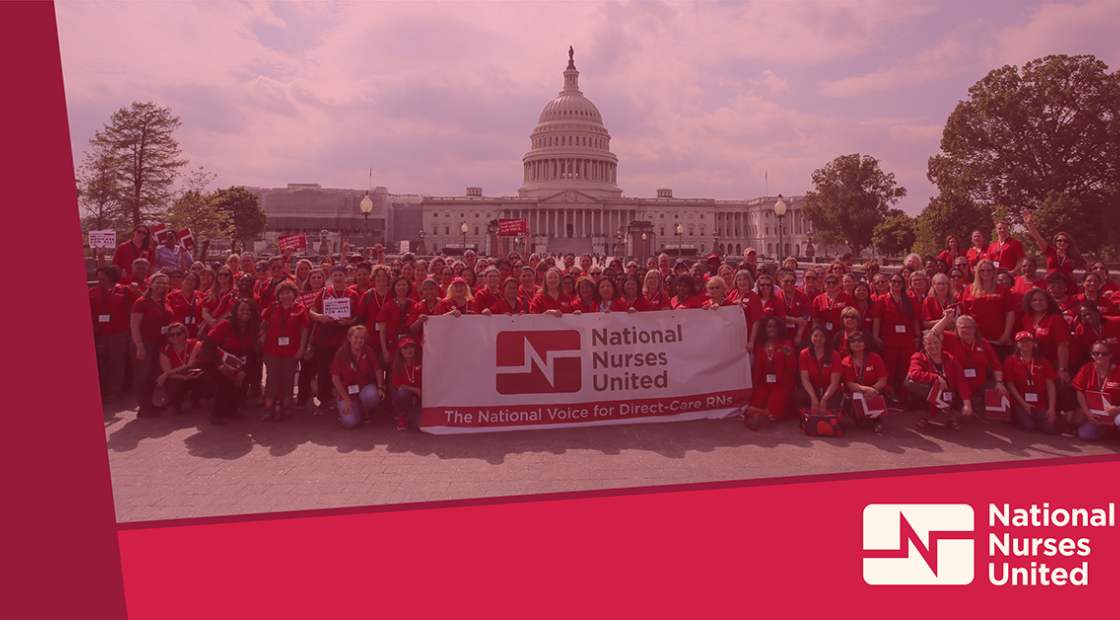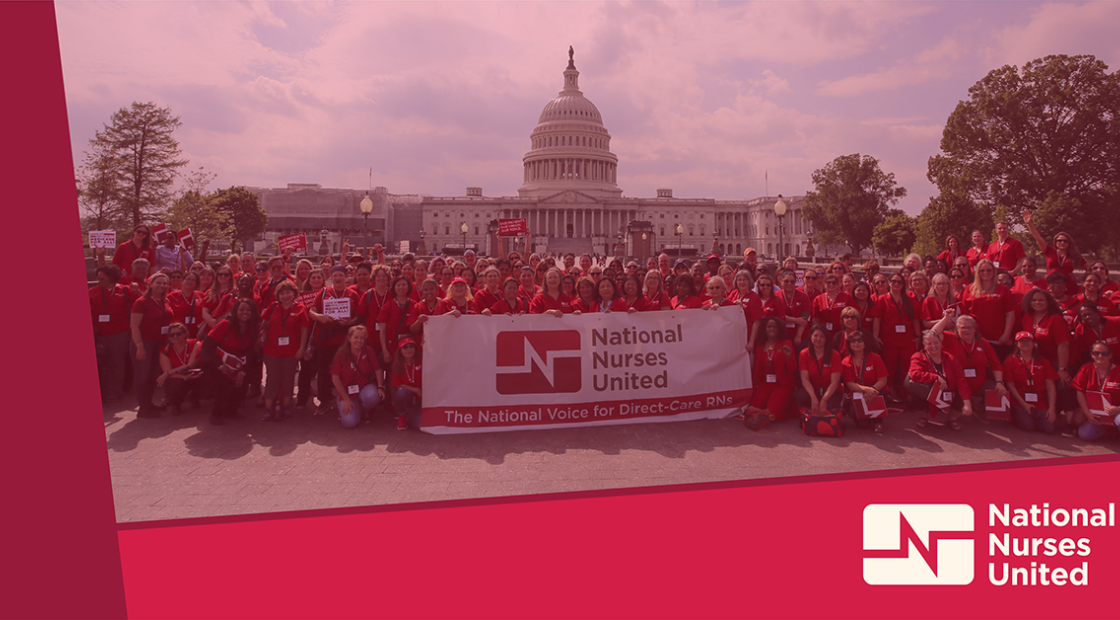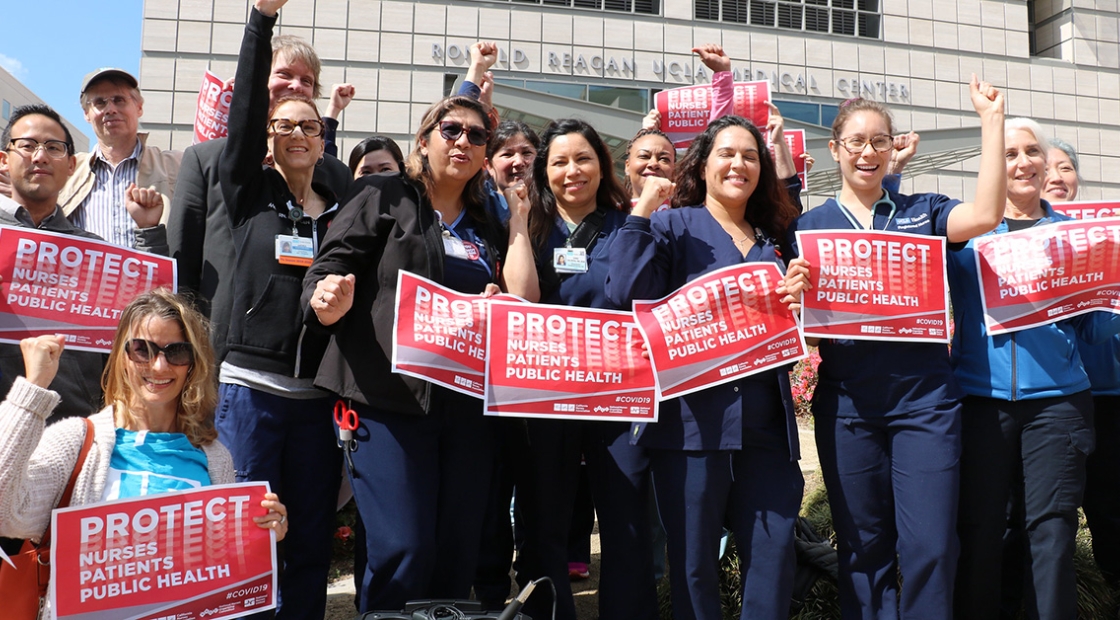Health and Safety
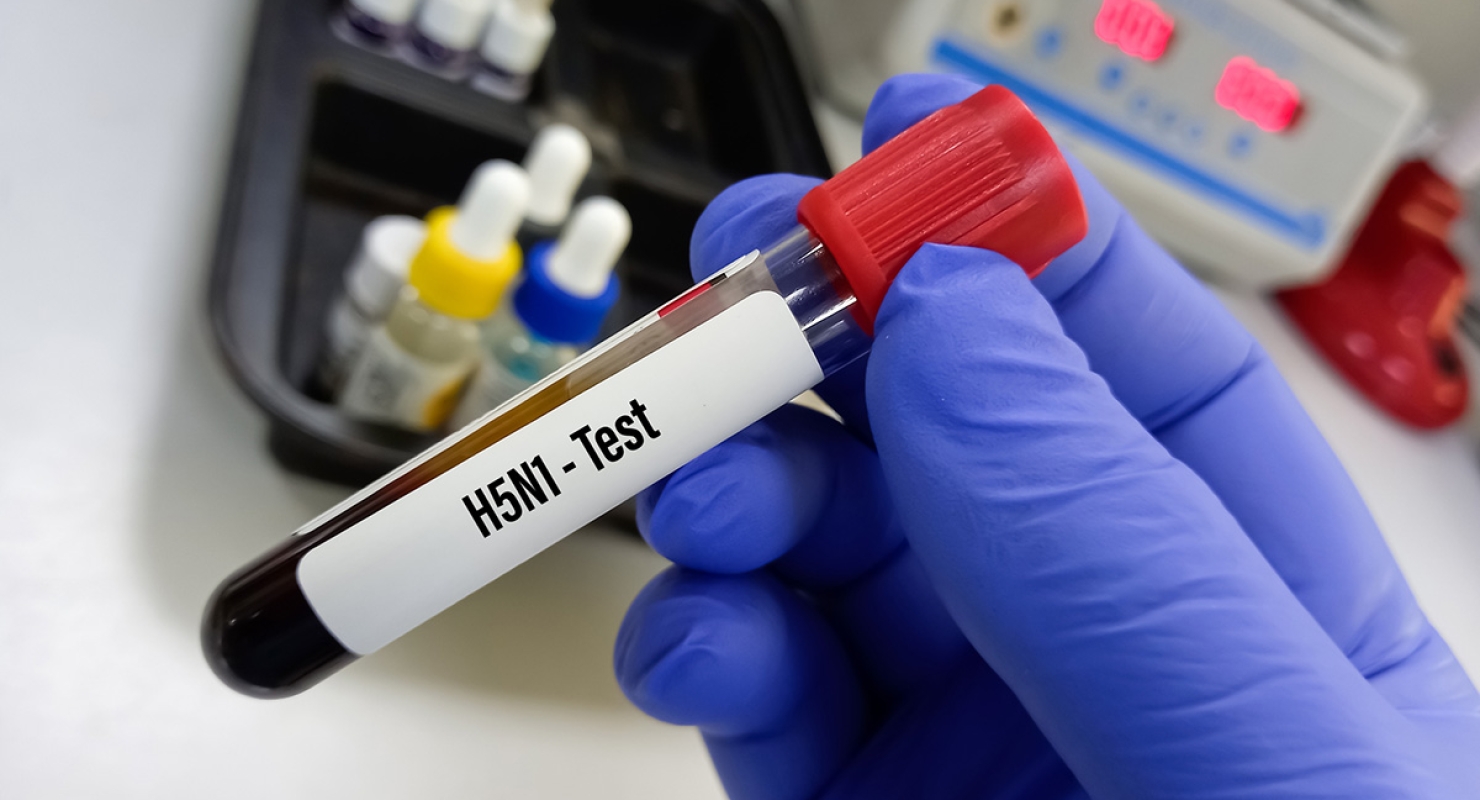
Avian influenza: what nurses need to know
Learn about what protections nurses and other health care workers need when caring for a patient with suspected or confirmed avian influenza and more.
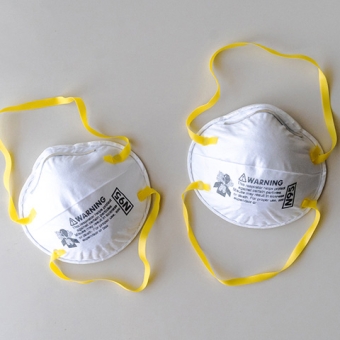
N95s and other respirators: What nurses need to know
Nurses and other health care workers rely on N95s and other respirators to protect their health at work. But the hospital industry has long sought to limit and eliminate use of N95s and other respirators in health care.
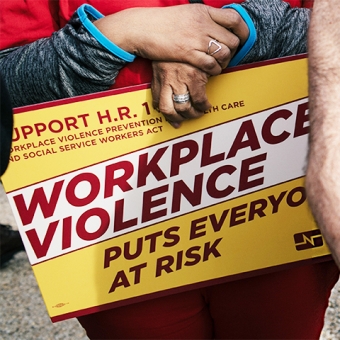
Workplace violence prevention: safe staffing is a key measure
Workplace violence is significantly more likely to happen when units are short-staffed and when nurses have heavy workloads. Read our fact sheet to learn more.
Our campaigns
RN-to-Patient Staffing Ratios
Registered nurses across the United States understand the need to set a minimum number of nurses to safely care for a given number of patients, with adjustments to increase nurse staffing based on patient acuity.
Workplace Violence Prevention
Violence against nurses and other health care workers in hospitals and other health care facilities is a growing epidemic across the United States. Learn more about NNU's national campaign to prevent workplace violence.
Patient Handling
Sprains, strains, and tears, make up 52% of all injuries that result in days away from work for RNs. Unsafe patient handling causes the bulk of these injuries, some of which have ended nurses’ careers. The solution? A safe patient handling program that includes appropriate equipment, education, and training.
Infectious Disease
NNU advocates for nurses to have the education, training, and personal protective equipment they need for infectious disease exposure control, including for known pathogens as well as preparation for emerging infectious diseases events such as the Covid-19 pandemic.
Latest resources
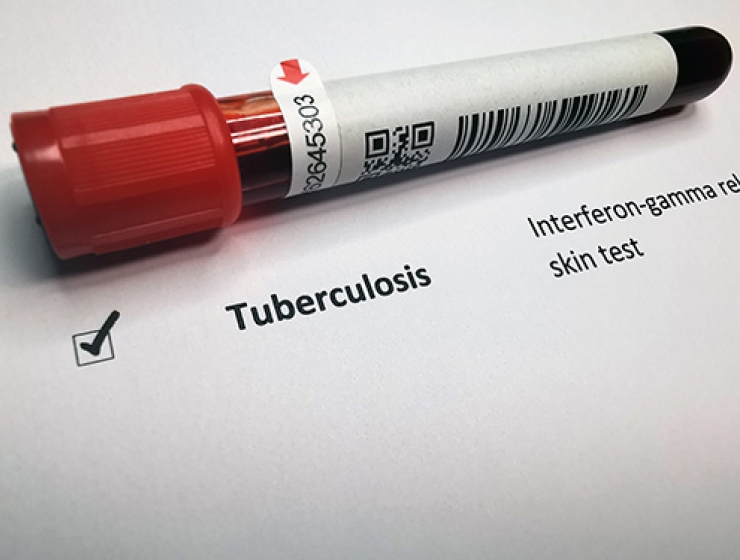
Tuberculosis: What nurses need to know
Tuberculosis (TB) is a respiratory infection caused by the bacteria Mycobacterium tuberculosis. TB continues to be a global human health hazard with 10.8 million cases and 1.25 million deaths in 2023. The Kansas City area is currently experiencing a large outbreak with more than 60 active cases and 70 latent cases identified since 2024.
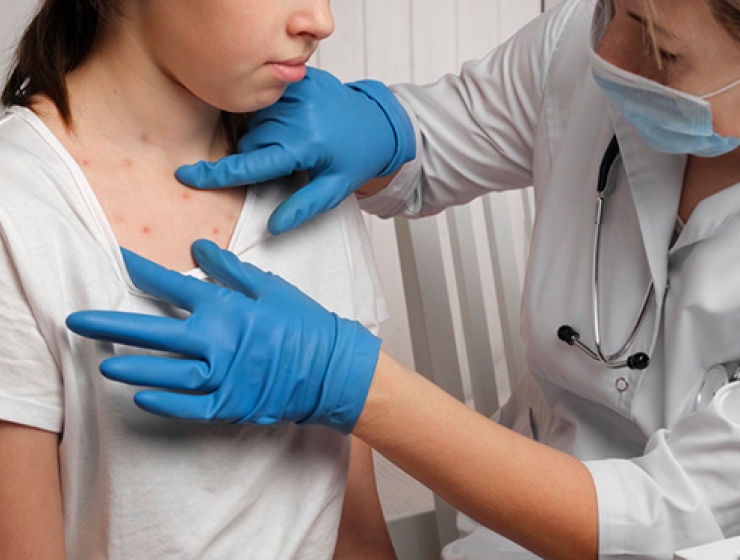
Measles: What nurses need to know
Globally, measles cases rose 30-fold in 2023 compared to 2022. Despite its elimination in the United States in 2000, there remains a serious risk of outbreaks. Learn about protections nurses and other health care workers need to care for a patient with suspected or confirmed measles.
C. auris: What nurses need to know
Candida auris (C. auris) is a type of yeast that can spread among patients in health care facilities. C. auris has emerged as a global health threat, due to its resistance to anti-fungal drugs and its ability to persist on skin and surfaces and cause a wide range of invasive infections.
Pertussis: What nurses need to know
Pertussis, also known as whooping cough, is a respiratory illness caused by the highly contagious bacterium, Bordetella pertussi. Pertussis can cause severe disease, especially in infants younger than one year. Individuals that are immunocompromised or have asthma also have a higher risk of severe illness if infected.

Nurse Advocacy Network
The NNU Nurse Advocacy Network is a community of activists who are ready to mobilize to ensure that nurses and other front line health care workers have the protections and safety standards they need to care for patients.
Research and reports
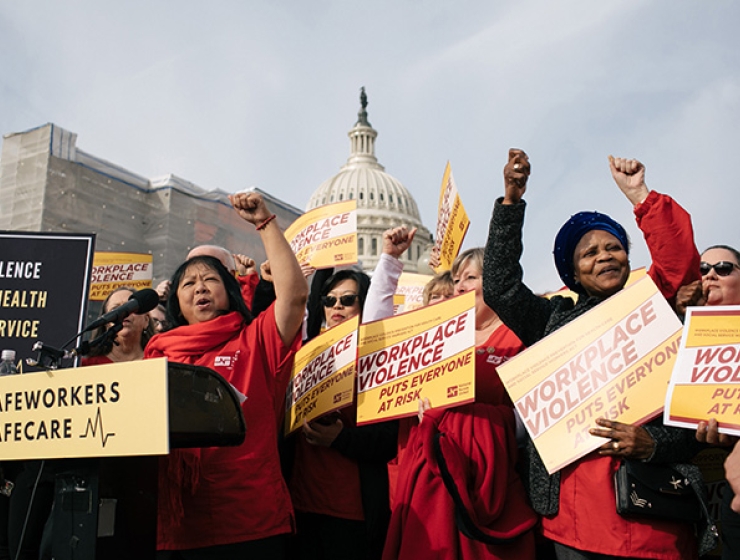
High and rising rates of workplace violence and employer failure to implement effective prevention strategies is contributing to the staffing crisis
This report analyzes new data, gathered in 2023 by National Nurses United regarding nurses’ recent experiences of workplace violence.
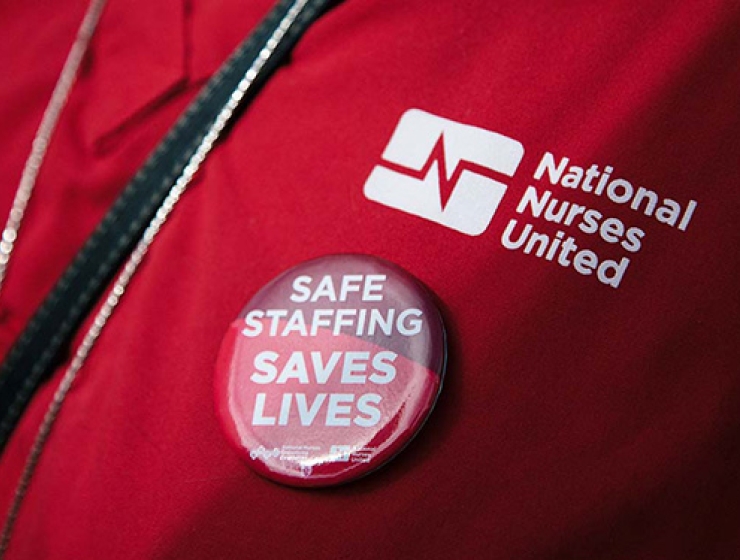
Protecting Our Front Line: Ending the Shortage of Good Nursing Jobs and the Industry-created Unsafe Staffing Crisis
In this report, National Nurses United describes how the hospital industry has driven registered nurses from the profession and proposes steps that must taken to keep RNs at the bedside and improve patient care in U.S. hospitals.
Workplace Violence and Covid-19 in Health Care: How the Hospital Industry Created an Occupational Syndemic
This report details stark evidence of how the dual failures of health care employers to protect nurses and patients from Covid-19 and workplace violence synergistically interact to amplify the harms caused by each individually.
Deadly Shame: Redressing the Devaluation of Registered Nurse Labor Through Pandemic Equity
This report provides an in-depth analysis of the devaluation of nurses’ care work and resulting inequities, their experiences on the pandemic’s front lines, and ways to redress these issues through collective action.
